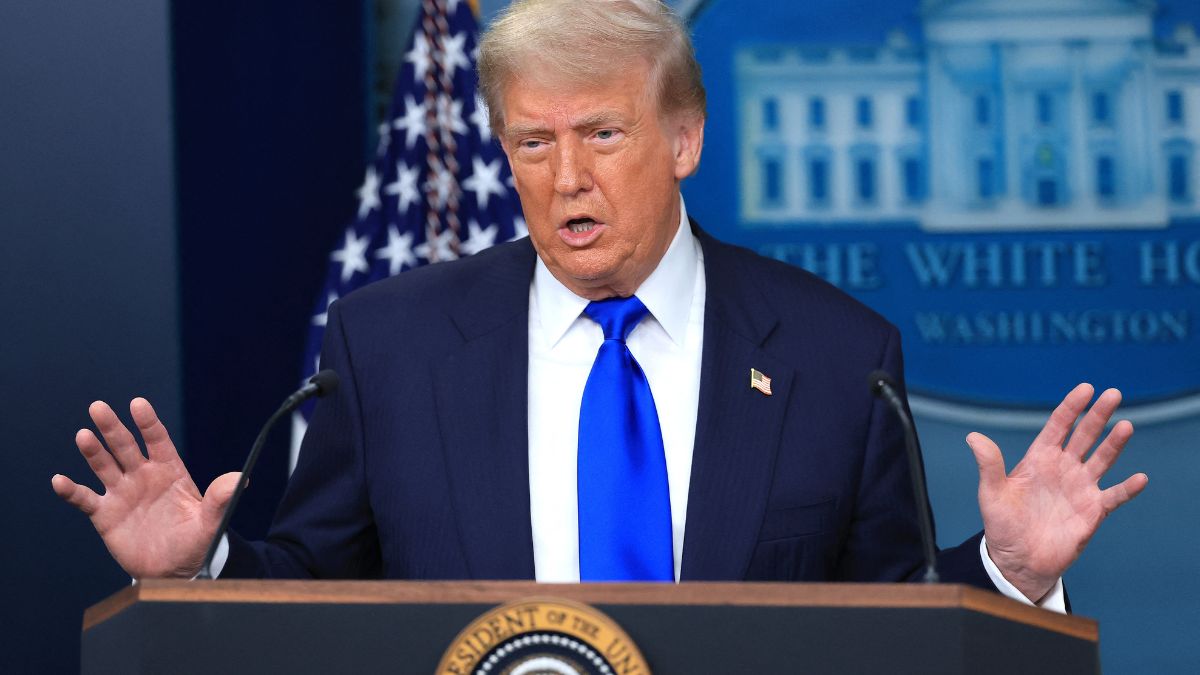A federal appeals court is set to hear arguments today on whether President Donald Trump can invoke the 1798 Alien Enemies Act to justify mass deportations, a case likely headed to the Supreme Court.
One of President Trump’s most controversial claims of executive power came in March, when he issued a proclamation invoking an 18th-century law to justify rounding up and deporting dozens of immigrants he alleged were members of a Venezuelan street gang.
According to a report by The New York Times, the Alien Enemies Act has been used only three times in US history, and only during wartime.
Trump’s use of the law has sparked serious questions about whether his actions align with the statute’s actual text, added the report.
For over three months, courts nationwide have struggled to answer whether President Trump overstepped legal boundaries in pursuing one of his key policy goals: mass deportation of immigrants.
On Monday, the legal fight reaches a critical stage as the US Court of Appeals for the Fifth Circuit in New Orleans hears arguments over Trump’s use of t he Alien Enemies Act.
The case is expected to revisit legal points already raised in lower courts by both the Trump administration and attorneys representing the Venezuelan men targeted under the policy.
Impact Shorts
More ShortsHowever, this hearing could prove decisive, likely becoming the first case on the issue to reach the Supreme Court for a full review of whether Trump’s use of the centuries-old law was lawful.
About Alien Enemies Act
Enacted in 1798 when United States faced potential war with France, the Alien Enemies Act grants the president broad authority to detain and expel nationals from hostile foreign powers, but only during a declared war, invasion, or what the law calls a “predatory incursion.”
From the outset, the Trump administration has taken an unorthodox approach to the statute, using it to target dozens of Venezuelan men accused of ties to the Tren de Aragua street gang, which President Trump has labeled a foreign terrorist organisation.
Trump and his advisers have argued that the men are not simply gang members, but operatives acting in coordination with the Venezuelan government. Their presence in the US, they claim, amounts to an invasion by a hostile state.
According to the NYT report_,_ the American Civil Liberties Union, representing the Venezuelan men, has dismissed the administration’s claims as baseless. ACLU lawyers argue that mass migration is not an invasion and say there’s no clear evidence linking their clients, many with no criminal records, to the Venezuelan government.
Most federal courts so far have agreed, ruling that Trump misused the Alien Enemies Act and that the migrants do not pose a military threat. However, two courts have backed the administration, citing the president’s broad authority over foreign affairs, especially involving a group labeled a terrorist organisation, added the report.
The ACLU faces tough odds in the Fifth Circuit, one of the most conservative appeals courts in the country. Regardless of Monday’s outcome, the case is widely expected to head to the Supreme Court.
Unusual path to Fifth Circuit
The case reached the Fifth Circuit through an unusual route. In April, the ACLU filed an emergency lawsuit after learning the Trump administration planned to deport Venezuelans held at the Bluebonnet Detention Facility in Texas under the Alien Enemies Act.
The ACLU argued it was a tactic to sidestep court orders in other states blocking similar deportations. When a district judge didn’t act quickly, the ACLU appealed to the Fifth Circuit and then the Supreme Court, warning the men faced imminent removal to El Salvador.
The Supreme Court temporarily halted the deportations, citing due process violations but avoiding the broader legal question. Last month, it upheld the freeze and sent the case back to the Fifth Circuit, instructing it to rule on two key issues: whether Trump’s use of the Act was lawful and what notice immigrants must receive before removal.
With inputs from agencies
)